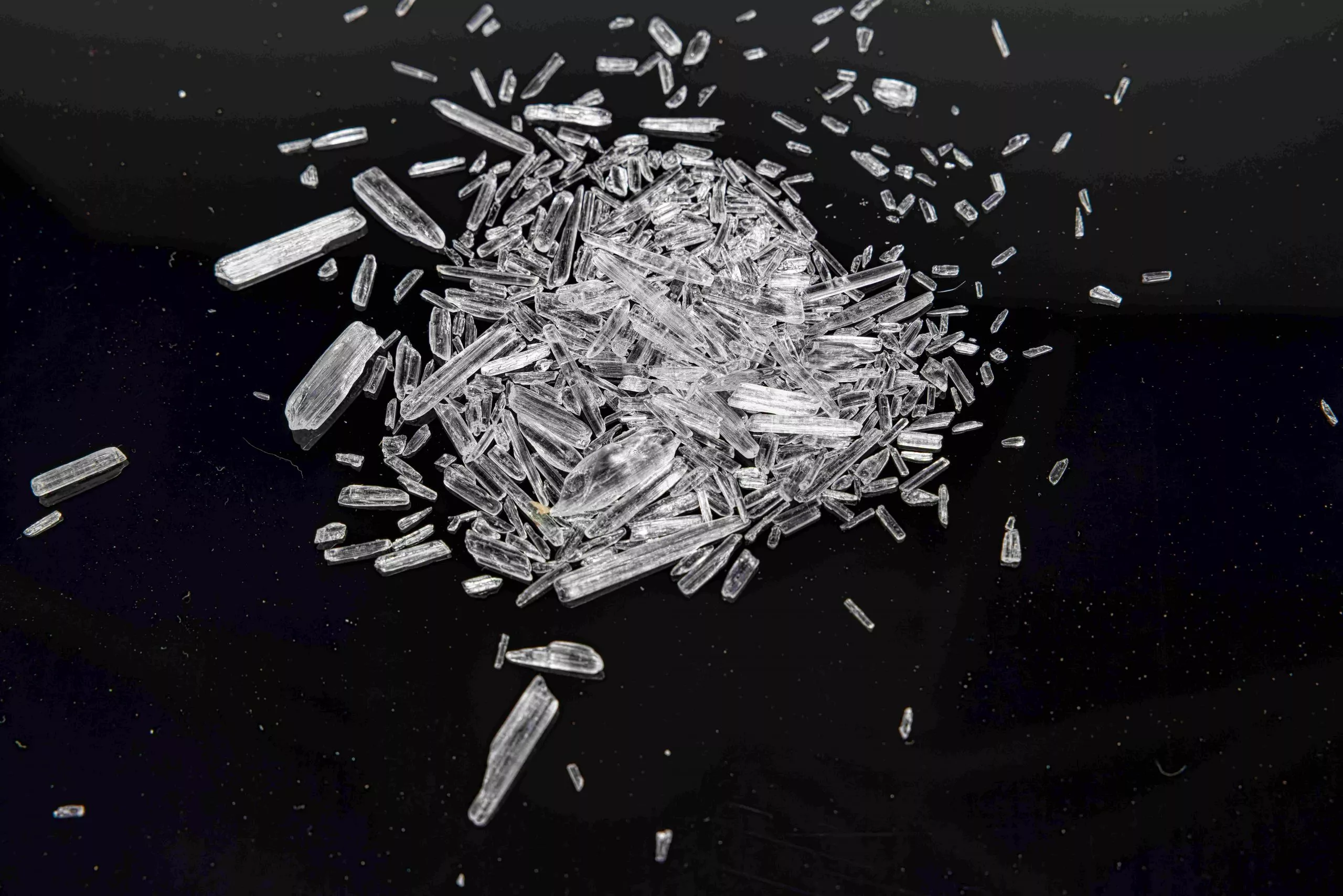Meth, short for methamphetamine, is a powerful central nervous system stimulant drug. It has many side effects, including meth sores, which is the focus of this article. Meth is chemically similar to amphetamine, a drug used to treat attention deficit hyperactivity disorder (ADHD) and narcolepsy. However, methamphetamine is significantly more potent and has a higher potential for abuse. Methamphetamine comes in several forms, including a white powder, a crystalline substance (known as crystal meth or "ice"), or pills. It is often illegally produced and sold as a recreational drug. Many users take methamphetamine for its effects of euphoria, increased energy, and alertness.
What Are Meth Sores?
Meth sores, also known as "meth mites," "meth bugs," or "speed bumps," is a colloquial term used to describe a common physical manifestation of methamphetamine abuse. The drug itself does not cause these meth facial sores or skin lesions but is often the result of the compulsive behaviors and side effects caused by methamphetamine use.
Methamphetamine can also lead to extreme restlessness, anxiety, and a heightened state of awareness, which may cause users to engage in repetitive and compulsive behaviors like skin picking.
Why Does Meth Cause Sores
At higher doses or with chronic use, methamphetamine can induce paranoia, prolonged insomnia, hallucinations, and psychotic symptoms. Many meth addicts develop delusions of parasitosis, a neurosis that produces the sensation of snakes or insects - “meth mites” - crawling on or under the skin. Individuals with the disorder are preoccupied with this idea and sometimes interpret skin markings, such as veins, old scars, skin pigmentation, or hairs, as evidence. This causes the meth user to experience a sensation known as ‘meth itchy skin’, which provokes them to attempt to remove the perceived parasites. This is usually done by picking at the skin with fingernails or another tool, resulting in meth acne, sores, and eventually meth scabs. Face sores from meth can dramatically alter the facial appearance by causing scarring and disfiguration.
Methamphetamine can also lead to extreme restlessness, anxiety, and a heightened state of awareness, which may cause users to engage in repetitive and compulsive behaviors like skin picking.
Harms of Meth Sores
As well as the unsightly appearance of methamphetamine scabs and sores, they carry with them several other harmful side effects.
- Risk of infection: The open sores can become infected due to the introduction of bacteria from dirty hands or unclean environments.
- Open sores increase the risk of skin infections; including abscesses and cellulitis.
- Methamphetamine abuse can weaken the immune system and restrict blood flow to the infected area, making it more difficult for the body to fight infections, and endangering the individual even more.
- Patients experiencing parasitosis will often maintain functionality but frequently develop feelings of frustration and helplessness.
- Meth skin sores can contribute to weakened self-esteem due to their visibility which means that others can identify their addiction problem. Although they can be concealed with makeup to some extent, they are still there - and will only worsen if the individual continues on the same tracks.
Other Signs of Meth Addiction
Meth abuse and addiction have serious effects on both the brain and body. Regular meth users can present with various physical, psychological, and behavioral signs. Below are some common signs/symptoms.
- Psychological signs of meth addiction:
- Insomnia
- Memory loss
- Mood swings
- Anxiety
- Paranoia
- Psychosis
- Physical signs of meth addiction:
- Severe dental issues
- Skin sores
- Malnutrition
- Damage to the liver, kidneys, and lungs
- Behavioral signs of meth addiction:
- Risky behaviors
- Aggressiveness
- Irritability
- Hyperactivity
How to Treat Meth Sores
Treatment for meth sores takes a three-pronged approach where addicts are treated for:
- Physical effects of the sores
- The psychological impact presently accompanying them
- The long-term drug abuse problems that brought the individual to where they currently are.
In many cases, methamphetamine use and delusions of parasitosis co-occur with other mental health issues such as schizophrenia, bipolar disorder, depression, anxiety, OCD, and illness anxiety disorder. Thus, when an individual is treated for meth skin sores and meth addiction, one of the first things a medical practitioner will do is evaluate their overall mental state and seek to diagnose whether they have a psychiatric disorder.
Physical Treatment for Meth Sores
In terms of the meth scabs and sores themselves, the medical practitioner will assess the extent of the damage of the sores and any potential infections. Medical professionals will clean and dress the wounds as needed and may prescribe antibiotics or other medications to treat or prevent infections. Individuals are also educated on proper hygiene practices to prevent further skin infections.
Treating Meth Addiction
Alongside treating meth sores, treating methamphetamine addiction is essential to prevent further damage and get the patient on the road to recovery. Therapeutic treatment may involve a residential treatment program or IOP programs, counseling, and support groups. Treatment will also include relapse prevention strategies, which are crucial in maintaining long-term recovery.
Methamphetamine abuse can result in serious long-term health problems such as seizures, stroke, and paralysis. It can also lead to overdose and even fatality. Individuals struggling with methamphetamine addiction must receive the treatment they need.
Avenues Recovery Can Help You Recover From Meth Addiction
Recovery from meth addiction may seem daunting, but with the help of our professional and caring staff, it is entirely attainable. If you or someone you know is struggling with methamphetamine addiction and meth sores, don’t hesitate to reach out to Avenues Recovery, where we will outline what your recovery journey will look like so that you can live a life free from addiction. Our experienced and caring addiction specialists have helped thousands of people reach a life of sobriety and they can help you too!



